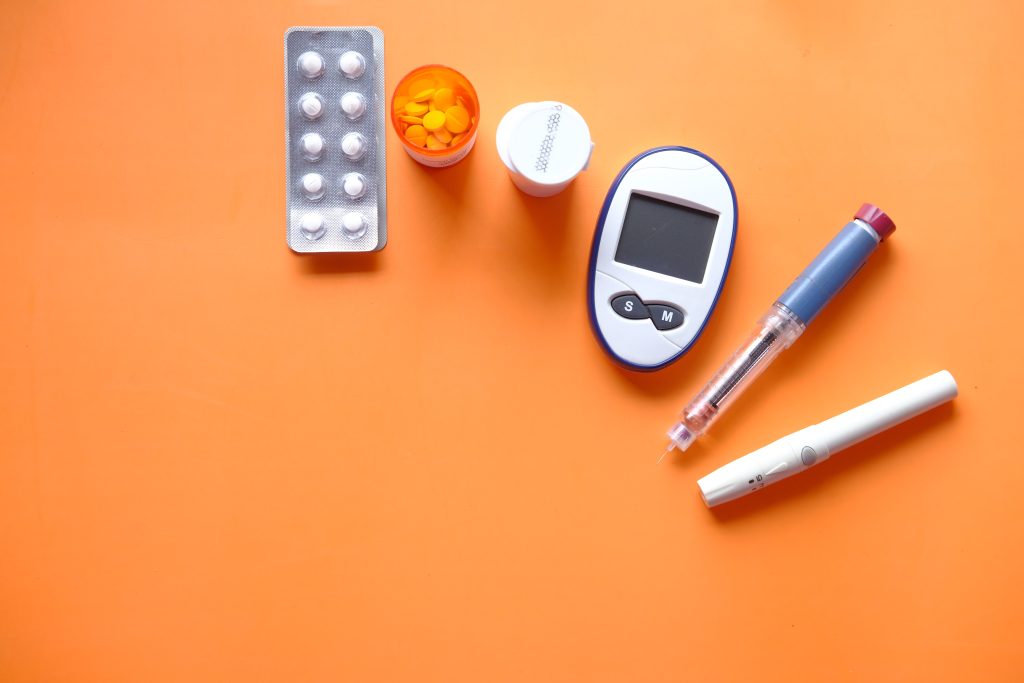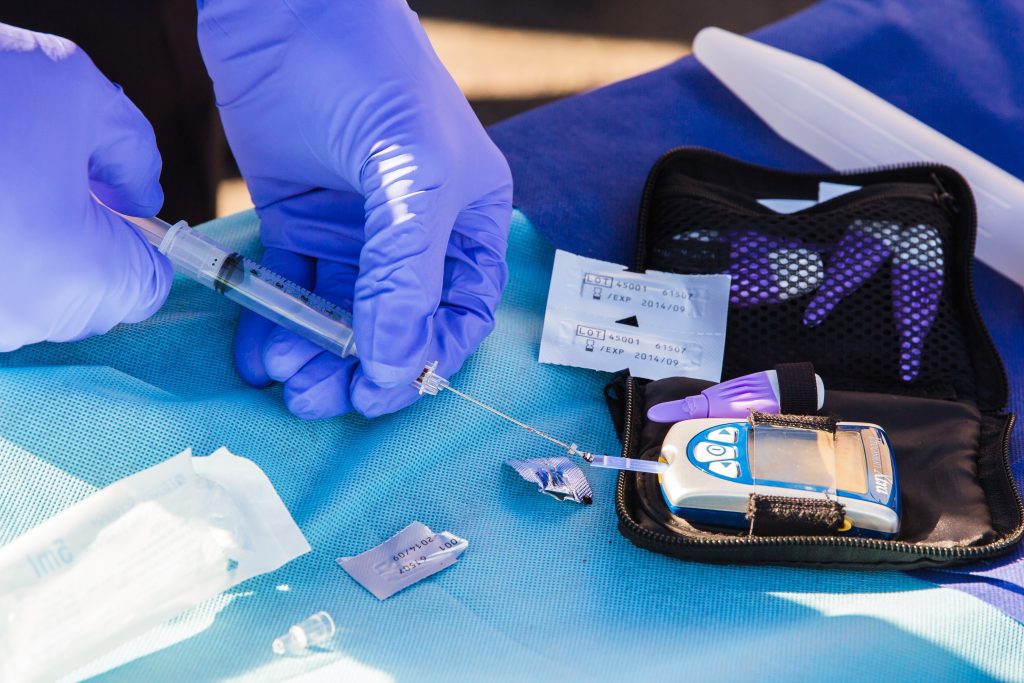Type 2 diabetes is a chronic condition that affects the way your body metabolizes sugar (glucose). With type 2 diabetes, your body either resists the effects of insulin—a hormone that regulates the movement of sugar into your cells—or doesn’t produce enough insulin to maintain normal glucose levels.
Untreated type 2 diabetes can cause a number of serious health complications, including heart disease, stroke, blindness, and kidney failure. However, with proper management, you can live a long and healthy life with type 2 diabetes.

Here is everything you need to know about type 2 diabetes, including:
- What are the symptoms of type 2 diabetes?
- What causes type 2 diabetes?
- How is type 2 diabetes diagnosed?
- How is type 2 diabetes treated?
- What are the complications of type 2 diabetes?
- How to manage type 2 diabetes
- Living with type 2 diabetes
What are the symptoms of type 2 diabetes?
Many people with type 2 diabetes have no symptoms initially. However, as the condition progresses, you may experience the following:
- Increased thirst
- Frequent urination
- Extreme hunger
- Unexplained weight loss
- Fatigue
- Blurred vision
- Slow-healing sores
- Numbness or tingling in the hands or feet
What causes type 2 diabetes?
The exact cause of type 2 diabetes is unknown, but it is thought to be caused by a combination of genetic and environmental factors. Some of the risk factors for type 2 diabetes include:
- Age (over 45)
- Family history of type 2 diabetes
- Overweight or obesity
- Physical inactivity
- Race or ethnicity (African Americans, Hispanic Americans, Native Americans, and Asian Americans are at increased risk)
- Gestational diabetes (diabetes that develops during pregnancy)
- Polycystic ovary syndrome (PCOS)
How is type 2 diabetes diagnosed?
Type 2 diabetes is diagnosed with a blood test. The most common blood test for type 2 diabetes is the A1C test, which measures your average blood sugar level over the past two to three months. Other blood tests that may be used to diagnose type 2 diabetes include the fasting blood sugar test and the two-hour postprandial blood sugar test.
How is type 2 diabetes treated?
Treatment for type 2 diabetes typically includes lifestyle changes, such as eating a healthy diet, exercising regularly, and losing weight, if needed. In some cases, medication may also be needed to control blood sugar levels.
Diet and exercise for type 2 diabetes
Eating a healthy diet and exercising regularly are essential for managing type 2 diabetes. A healthy diet for people with type 2 diabetes includes plenty of fruits, vegetables, and whole grains. It is also important to limit processed foods, sugary drinks, and saturated and unhealthy fats.
Exercise can help to lower blood sugar levels, improve insulin sensitivity, and promote weight loss. Adults with type 2 diabetes should aim for at least 30 minutes of moderate-intensity exercise most days of the week.

Medications for type 2 diabetes
There are a number of different medications that can be used to treat type 2 diabetes. The type of medication that is right for you will depend on your individual needs and circumstances.
Some of the most common medications for type 2 diabetes include:
- Oral medications: These medications are taken by mouth and work in a variety of ways to lower blood sugar levels.
- Injectable medications: These medications are injected under the skin or into the muscle and work by increasing insulin production or improving insulin sensitivity.
- Combination medications: These medications combine two or more different types of medications into a single pill.
Other treatments for type 2 diabetes
In addition to diet, exercise, and medication, there are a number of other things you can do to manage your type 2 diabetes, such as:
- Monitoring your blood sugar levels: Regular blood sugar monitoring can help you to identify patterns in your blood sugar levels and make adjustments to your treatment plan as needed.
- Taking care of your feet: People with type 2 diabetes are at increased risk for foot problems, such as nerve damage and poor circulation. It is important to inspect your feet daily for cuts, blisters, and other signs of problems.
- Getting regular dental checkups: People with type 2 diabetes are also at increased risk for gum disease. It is important to get regular dental checkups and cleanings to help prevent gum disease.
Complications of type 2 diabetes
Untreated type 2 diabetes can lead to a number of serious health complications, including:
- Heart disease and stroke: Type 2 diabetes increases your risk of heart disease and stroke by two to four times.
- Blindness: Type 2 diabetes is the leading cause of blindness in adults.
- Kidney failure: Type 2 diabetes is the leading cause of kidney failure in adults.
- Nerve damage: Type 2 diabetes can damage nerves throughout your body, leading to numbness and tingling, pain, and difficulty walking.
- Amputations: Type 2 diabetes is the leading cause of non-traumatic amputations in adults.
- Alzheimer’s disease: Type 2 diabetes increases your risk of Alzheimer’s disease and other forms of dementia.
How to manage type 2 diabetes
Managing type 2 diabetes can be challenging, but it is important to remember that you are not alone. There are a number of resources available to help you, including your healthcare team, diabetes educators, and support groups.
Here are some tips for managing type 2 diabetes:
- Eat a healthy diet: Eating a healthy diet is essential for managing type 2 diabetes. A healthy diet for people with type 2 diabetes includes plenty of fruits, vegetables, and whole grains. It is also important to limit processed foods, sugary drinks, and saturated and unhealthy fats.
- Exercise regularly: Exercise is another important part of managing type 2 diabetes. Exercise helps to lower blood sugar levels, improve insulin sensitivity, and promote weight loss. Adults with type 2 diabetes should aim for at least 30 minutes of moderate-intensity exercise most days of the week.
- Take your medication as prescribed: If your doctor prescribes medication for type 2 diabetes, be sure to take it as prescribed. Medication can help to lower blood sugar levels and prevent complications.
- Monitor your blood sugar levels: Regular blood sugar monitoring can help you identify patterns in your blood sugar levels and make adjustments to your treatment plan as needed.
Living with type 2 diabetes
Living with type 2 diabetes can be challenging, but it is important to remember that you are not alone. There are a number of resources available to help you, including your healthcare team, diabetes educators, and support groups.
Here are some tips for living with type 2 diabetes:
- Educate yourself about type 2 diabetes: Learning as much as you can about type 2 diabetes can help you manage your condition more effectively. Talk to your doctor, diabetes educator, or other healthcare professionals about type 2 diabetes and how it affects you.
- Find a support system: Having a support system of friends, family, or other people with type 2 diabetes can be very helpful. These people can offer you support and advice, and help you to stay motivated.
- Take care of yourself: It is important to take care of yourself both physically and mentally when you have type 2 diabetes. Make sure to eat a healthy diet, exercise regularly, and get enough sleep. It is also important to manage stress and find healthy ways to cope.
With proper management, you can live a long and healthy life with type 2 diabetes.







